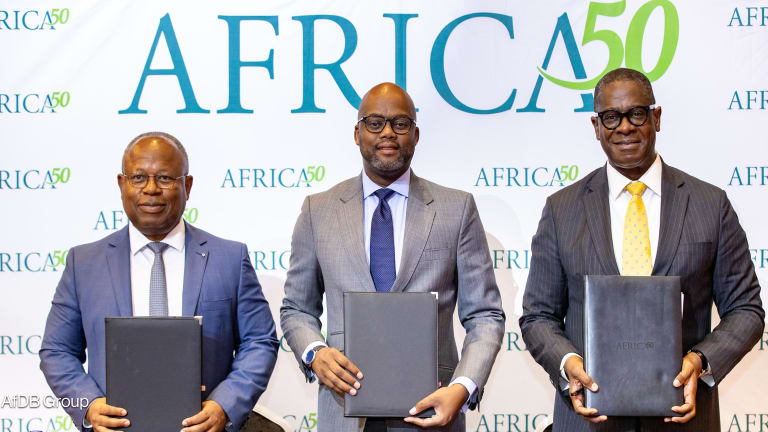
Vast additional investments are needed to combat climate change and keep our planet on a path of no more than 2 degree Celsius warming. No one knows exactly, but a figure often cited is $1 trillion dollars — per year, until 2030. At the same time, institutional asset owners around the world, including insurance companies, pension funds and others sit on assets worth somewhere in the region of $70 trillion.
It is tempting to conclude that these investors hold the key to solving the climate change issue: if only they invested just 1 or 2 percent of that money in green projects, the problem could be solved.
But it’s not as simple as that. The primary responsibility of these investors is to manage their portfolios in a way that ensures they can pay out pensions or insurance claims to their beneficiaries. The basic technique to manage investments in such a way is called asset-liability management. It begins with an understanding of the specific features present in those liabilities, most importantly the way in which their value fluctuates as interest rates shift, and the cash flow patterns they entail.
The starting point for managing those assets is then to build portfolios that closely replicate those features. This will define how much these investors will put in very safe assets such as government bonds, equities or other types of investments. But it’s even more complicated than that. Capital requirements, regulatory restrictions, tax considerations, etc. all need to be considered as well.
Take Zurich Insurance Group, for example. Our roughly $200 billion in investments are held in over 500 different portfolios, in many dozens of different legal entities, across almost three dozen countries, each representing different regulatory and tax regimes, not to mention different local insurance liability profiles that need to be replicated.
Luckily, institutional asset owners are just one link in a chain connecting savers’ capital to investment in physical assets. While investors can, and do, invest in things like wind mills or transportation infrastructure directly, so can companies or public actors, who in turn also receive financing from investors. Which actor is best placed to directly finance what share of projects through which channel depends on who is best placed to understand, diversify and carry the risks that go with it.
Practical solutions
So what can and should institutional investors actually do to address climate change?
I suggest two priorities: first, thinking of climate change as an input into the investment process by capturing the risks it represents; and second,tThinking of climate change as an output, or outcome, to capture the contribution investments make to (combat) climate change.
Let’s start by looking at the outcome dimension.
In essence, this is an optimization problem. Asset-liability management will inform what types of investments should be made in general. For Zurich, for instance, this process results in a target of investing roughly 30 percent of investments in very safe assets such as government bonds, 50 percent in other fixed income instruments that carry more risks, 5 percent in equities, and so on. The question investors ought to ask at this stage is: are there investment opportunities that match the desired risk-return characteristics of those allocations, while also generating positive climate outcomes? And how can those investments be accessed systematically — i.e. how can we make sure to give a preference to those investments with a positive impact, all other things being equal?
At Zurich, for instance, we have identified green bonds as an investment opportunity that delivers both, the desired risk-return profile, and positive impact. In green bonds Zurich is not directly financing green projects, but it is providing capital to companies, municipalities, supranational institutions etc. under the condition that the proceeds be used towards green projects. Given the very substantial overall allocation to bonds, we see a lot of potential in that instrument. Only recently have we started to invest in infrastructure directly by providing debt financing to projects.
This is a much smaller part of our portfolio that may reach a percent or two of total investments in the medium term. We are in the process of determining what the optimal share of green projects is, but it is clear that considering prudent diversification it will only be a certain fraction of total infrastructure investments.
Measuring ‘green’
One big challenge with this approach is the definition of what is ‘green,’ and the measurement of the impact. It’s clear that this cannot just be exclusively about renewable energy generation, which may be easy to ‘spot’ and measure. To tackle climate change, we need investments in green transport, green housing, green agriculture, energy efficiency across the board — green everything. But what really qualifies as green, and how do we measure it? That’s where investors have much to learn from the world of development.
Traditionally, investors didn’t care about measuring environmental or social impacts. But if ‘green’ becomes part of the process to select investments, then we better find a way to quantify the results. As a good example, investors and supranational institutions have collaborated to define a standard impact reporting template that can be used by green bond issuers. More of that is needed.
Risks: Real and relevant
Whether financed directly or indirectly, for investors climate change cannot just be about green projects. An even more important dimension is that of risk. How will climate change impact the economic risks associated with different investments across a portfolio? Whether this is an equity investment in the agricultural sector or in a bank; the bond of an energy or a food company; a piece of real estate — climate change is likely to impact most, if not every single type of investment one way or another.
While an increasing number of investors are coming to acknowledge that these risks are real and relevant, almost all of us struggle to understand and deal with them systematically. At the core of the struggle lies a lack of metrics that can be both disclosed systematically and translated into financial analysis and valuation. Carbon footprints may be an element, but will not be sufficient to capture the breadth of risks.
Again, there is room for collaboration between the world of development and institutional investors.
The development sector has designed elaborate tools to capture and assess environmental risks, and investors ought to learn from that. While not as spectacular as making multibillion commitments to finance green infrastructure, getting the risks right might be an equally critical way to provide solutions: putting a price-tag on the full breadth of climate change-related risk will, over time, prompt those who seek to raise capital in the market to make the necessary investments into mitigation and resilience for their institutions.
So rather than just focusing on investors’ wallets, the world of development and investors should work together in creating the data and tools that will allow investors to reflect climate change as an integral part of their investment processes: to better manage climate risks, and to create better climate outcomes.
Planet Worth is a global conversation in partnership with Abt Associates, Chemonics, HELVETAS, Tetra Tech, the U.N. Development Program and Zurich, exploring leading solutions in the fight against climate change, while highlighting the champions of climate adaptation amid emerging global challenges. Visit the campaign site and join the conversation using #PlanetWorth.








